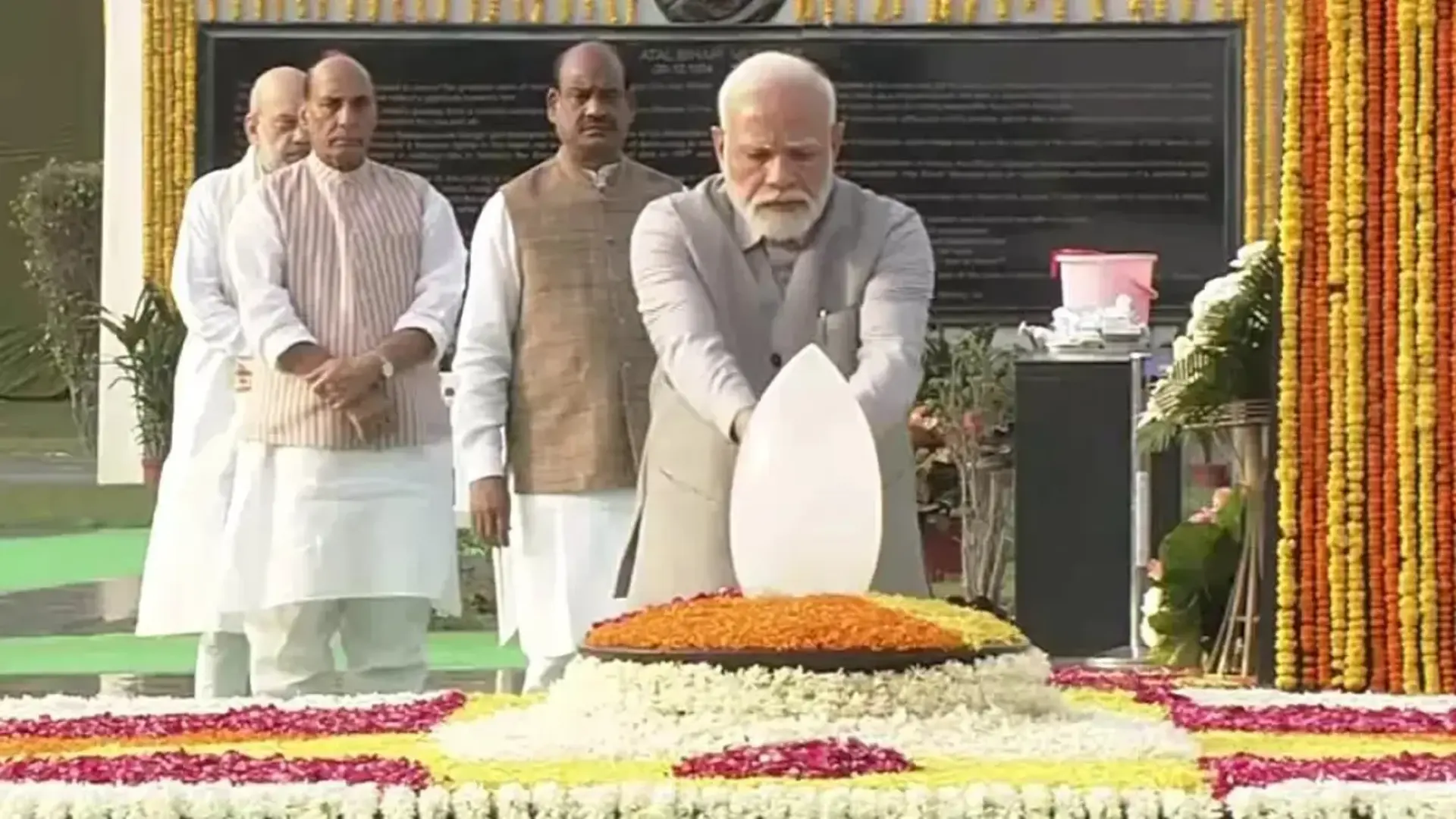While ruling on a very relevant penal law subject which has been in the news quite often grabbing the limelight for its rampant misuse, the Uttarakhand High Court at Nainital has in a most learned, laudable, landmark and latest judgment titled Manoj Kumar Arya v State of Uttarakhand and another in Criminal Misc. Application No. 79 of 2021 that was pronounced recently on July 5, 2023 quashed pending criminal proceedings against a man for allegedly having sexual intercourse with a lady for decades on the false promise of marriage. While disapproving in no uncertain terms the continuance of such case, we see that the Single Judge Bench of Hon’ble Mr Justice Sharad Kumar Sharma observed that, “In fact, the offence under Section 376 of the IPC as of now in this modernised society is being misused as a weapon by the females to be misutilized, as soon as there arise certain differences between herself and her male counterpart, and rather it is being used as a weapon to duress upon the other side for a number of undisclosed factors, and it cannot be ruled out, that the provisions contained under Section 376 of the IPC are being rampantly misused by the females.” The Court very rightly concluded that the applicant cannot be impleaded in criminal charges especially when the complainant consented for continuing physical relationship even after the marriage of the applicant. The Court found such act of the complainant to be a valid consent. Accordingly, the pending criminal proceedings were ordered to be quashed and set aside. Very rightly so!
At the very outset, this brief, brilliant, bold and balanced judgment authored by the Single Judge Bench of Hon’ble Mr Justice Sharad Kumar Sharma sets the ball in motion by first and foremost putting forth in para 1 that, “The content of the FIR apparently speaks in itself as to whether at all, under the peculiar set of circumstances, and the allegations levelled therein, there could at all be an offence under Section 376 of the IPC.”
To put things in perspective, the Bench then envisages in para 2 that, “The complainant/respondent No.2, when she registered an FIR on 30th June, 2020, being FIR No. 308 of 2020, she levelled an allegation for commission of offence under Section 376 of the IPC, as against the named accused person, i.e., the present applicant. But considering the gravity of the offence under Section 376 of the IPC, though apparently, it seems to be a social menace, which is normally levelled against a male, but then, we have to simultaneously balance the equity or and also look into the aspect of the contribution or the active role played by a female for commission of the offence under Section 376 of the IPC.”
As we see, the Bench points out in para 3 that, “The offence under Section 376 of the IPC, is only penal in nature, which provides for a punishment to an accused person who is ultimately found to be involved in the commission of rape. In order to derive as to whether an act complained of in the FIR, actually happens to be a rape itself, Section 376 of the IPC, is to be taken into consideration.”
Tersely put, the Bench states in para 4 that, “There are various facets provided under the definition of rape under Section 375 of the IPC, which primarily is pivoted around a “consent of the opposite sex”. If there is an element of consent available for the commission of the offence under Section 376 of the IPC or is apparently made out from allegations, it cannot be termed to be a rape because, it is a consensual relationship which was established by the consent of the opposite sex.”
For sake of clarity, the Bench clarifies in para 5 that, “It is only when the ingredient of Section 375 of the IPC is satisfied in the FIR registered by the complainant, that a person could be punished for the penal provisions provided under Section 376 of the IPC, and not otherwise.”
While elaborating on the facts of the case, the Bench enunciates in para 6 that, “The facts of the instant case are, that it is admittedly a complainant’s case, that prior to May, 2005, for over the last 1-1/2 decades, she was in an intimate relationship with the present applicant, and the said relationship with him and had gone to an extent, where they had assured each other to get married, as soon as either of them would get a job. It is contended by the complainant, that under the said pretext, the physical relationship was established at the residence of both the parties, which continued to be established for quite a long time, and even thereafter, when the present applicant had even got married with some other lady, then too, the physical relationship was established by the complainant, with the applicant.”
It would be germane to note that the Bench points out specifically in para 7 that, “When the complainant had voluntarily established a relationship even after knowing the fact, that the applicant is already a married person, the element of consent itself imbibes in it, and once it is established that the consent is present, and which is quite apparent in the instant case, when ever since 2015 till the date of registration of the FIR, when there was no complaint registered by the complainant prior to the present FIR, and when there was no retaliation of any nature whatsoever, and if at all the theory of respondent No.2 is to be accepted about the commission of the offence under Section 376 of the IPC, in that eventuality, it was the responsibility of the complainant, that she could have got herself medically examined as to whether, it was an offence committed against her consent and that a retaliation which could have been established only after her medical examination and the report, which was required to be thus submitted by the Medical Officer. All these aspects are lacking in the instant case.”
Most significantly, the Bench minces absolutely no words to hold unequivocally in para 8 that, “In fact, the offence under Section 376 of the IPC as of now in this modernised society is being misused as a weapon by the females to be misutilized, as soon as there arise certain differences between herself and her male counterpart, and rather it is being used as a weapon to duress upon the other side for a number of undisclosed factors, and it cannot be ruled out, that the provisions contained under Section 376 of the IPC are being rampantly misused by the females. That is why, the Hon’ble Apex Court in a judgment as reported in 2021, SCC OnLine SC 181, Sonu alias Subhash Kumar Vs. State of U.P. and another, has observed in para 10 and 11, which are extracted hereunder, that when a physical relationship is established with a consent, and if it justifies the test in exclusion to the provisions contained under Section 375 of the IPC, it will not be a rape, and at the most it could be taken as to be an offence for the breach of trust, but at least not an offence under Section 376. Paras 10 and 11 are extracted hereunder:-
“10 Further, the Court has observed:
“To summarise the legal position that emerges from the above cases, the “consent” of a woman with respect to Section 375 must involve an active and reasoned deliberation towards the proposed act. To establish whether the “consent” was vitiated by a “misconception of fact” arising out of a promise to marry, two propositions must be established. The promise of marriage must have been a false promise, given in bad faith and with no intention of being adhered to at the time it was given. The false promise itself must be of immediate relevance, or bear a direct nexus to the woman’s decision to engage in the sexual act.”
11. Bearing in mind the tests which have been enunciated in the above decision, we are of the view that even assuming that all the allegations in the FIR are correct for the purposes of considering the application for quashing under Section 482 of CrPC, no offence has been established. There is no allegation to the effect that the promise to marry given to the second respondent was false at the inception. On the contrary, it would appear from the contents of the FIR that there was a subsequent refusal on the part of the appellant to marry the second respondent which gave rise to the registration of the FIR. On these facts, we are of the view that the High Court was in error in declining to entertain the petition under Section 482 of CrPC on the basis that it was only the evidence at trial which would lead to a determination as to whether an offence was established.”
Do note, the Bench notes in para 9 that, “Following the aforesaid principle based on females active participation, this Court too in the case of Criminal Misc. Application No. 730 of 2022, Vijay Shukla Vs. State of Uttarakhand and another, based upon the principle laid down by the Hon’ble Apex Court, has observed, that when there is a consensual relationship with an active participation by female, there would be no offence under Section 376 of the IPC, except for an offence of breach of trust.”
While citing the relevant case law, the Bench observes in para 10 that, “The Hon’ble Apex Court yet in another judgment as reported in (2013) 7 SCC 675, Deepak Gulati Vs. State of Haryana, has almost laid down an akin principle, that what would the modalities be to test the implied or express consent in order to determine as to whether, it would be a consent within the ambit of Section 375 of the IPC. The consent itself could be, when there is an absence of coercion or a misguidance being extended to the opposite party, but when the consent is implied and accompanied by a positive deliberation of mind, and it is weighed in the balance of the aptitude of the applicant involved in the commission of offence with the opposite sex, there would be a clear distinction between rape and consensual sex, and it is in a case like this, where the Court has very carefully said that at the time of considering the basic factors of the offence under Section 376 of the IPC, the Court will have to carefully examine whether the accused actually wanted to marry the victim or had mala fide motives. This minor exception which has been carved out in the instant case as referred to hereinabove in para 21 and 22, is yet again distinguishable in its applicability to the present C482 Application because, the complainant, admittedly, even after knowing the fact, that the applicant was married to another female had entered into a consensual sexual relationship. Paras 21 and 22 of the said judgment are extracted hereunder :-
“21. Consent may be express or implied, coerced or misguided, obtained willingly or through deceit. Consent is an act of reason, accompanied by deliberation, the mind weighing, as in a balance, the good and evil on each side. There is a clear distinction between rape and consensual sex and in a case like this, the court must very carefully examine whether the accused had actually wanted to marry the victim, or had mala fide motives, and had made a false promise to this effect only to satisfy his lust, as the latter falls within the ambit of cheating or deception. There is a distinction between the mere breach of a promise, and not fulfilling a false promise. Thus, the court must examine whether there was made, at an early stage a false promise of marriage by the accused; and whether the consent involved was given after wholly, understanding the nature and consequences of sexual indulgence. There may be a case where the prosecutrix agrees to have sexual intercourse on account of her love and passion for the accused, and not solely on account of mis-representation made to her by the accused, or where an accused on account of circumstances which he could not have foreseen, or which were beyond his control, was unable to marry her, despite having every intention to do so. Such cases must be treated differently. An accused can be convicted for rape only if the court reaches a conclusion that the intention of the accused was mala fide, and that he had clandestine motives.
22. In Deelip Singh (supra), it has been observed as under:
“20. The factors set out in the first part of Section 90 are from the point of view of the victim. The second part of Section 90 enacts the corresponding provision from the point of view of the accused. It envisages that the accused too has knowledge or has reason to believe that the consent was given by the victim in consequence of fear of injury or misconception of fact. Thus, the second part lays emphasis on the knowledge or reasonable belief of the person who obtains the tainted consent. The requirements of both the parts should be cumulatively satisfied. In other words, the court has to see whether the person giving the consent had given it under fear of injury or misconception of fact and the court should also be satisfied that the person doing the act i.e. the alleged offender, is conscious of the fact or should have reason to think that but for the fear or misconception, the consent would not have been given. This is the scheme of Section 90 which is couched in negative terminology.””
Please read concluding on
link4din.com/guardians-numeric-wisdom







